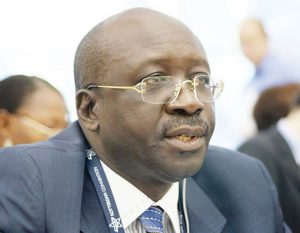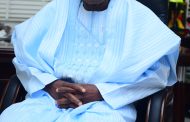One feature that has been common to all the leading candidates since the current electioneering campaign started about five months ago is slippage. Asiwaju Bola Ahmed Tinubu of the All Progressives Congress, (APC) wasted no time in asking attendees at one of his earliest rallies to vote for the People’s Democratic Party (PDP) which is about its strongest challenger in the presidential contest a few weeks away.

All caught up in slippages. What might be happening?
Alhaji Atiku Abubakar followed the Tinubu pathway and in the same Jos or nearby asked his supporters to vote for the APC. The wife of one of them could not escape the slippage bonanza too. Now, Dr. Iyorchia Ayu, the embattled National Chairman of the PDP is here with the mother of all slippages, asking party supporters to vote for the APC.
While that of Asiwaju and Atiku could be said to be understandable because they have moved from one party to another too many, that of Ayu is simply incomprehensible. He is a member of the nine original founders of the PDP and he has never moved to any party since then. So, what happened to him and his thought process to give birth to the slippage?
Although Intervention cannot recollect any against Peter Obi of the Labour Party immediately, he too may not have escaped it.
Now, in deconstructive reasoning, a slippage is not an error. Rather, it is treated in the same category as contradictions, tension, ‘silences’ and similar features in the politics of rhetoric. In other words, it conveys meaning. It is an attempt to circulate power, an analysis from language, psychology/psychiatry and political science.

The most surprising case. Is it possible PDP fears APC so much and vice-versa?
Against that background, the slippages recorded so far is a phenomenon to probe, not something to ignore. They are not careless excesses and the meaning of each slippage does not depend on what the speaker says it is. It depends on what the dominant interpretation of it is in the society.
If the political parties in Nigeria were used to party ideological schools, such schools would normally have a pool of experts to analyse the respective slippages for the education of its hierarchy and warning against the implications. Now that such is not the case, the phenomenon might not draw much attention beyond a few editors and writers steeped in Fantasmatic Analysis or few departments of Linguistics, Psychology and Political Science. It is most likely the DSS will have taken note of it but the DSS doesn’t share its analysis with anybody.
But it is not just an academic issue for there to be slippages all over the place, including from people who have no visible signs of constraining ailments. While keen observers of Asiwaju Tinubu might have gotten used to slippages and ‘slippages’, that of Ayu and Atiku are not clear.
This piece is not indicting anyone for slippages but merely warning that slippages are not casual errors. Instead, they are textually meaningful and should not be ignored.




























